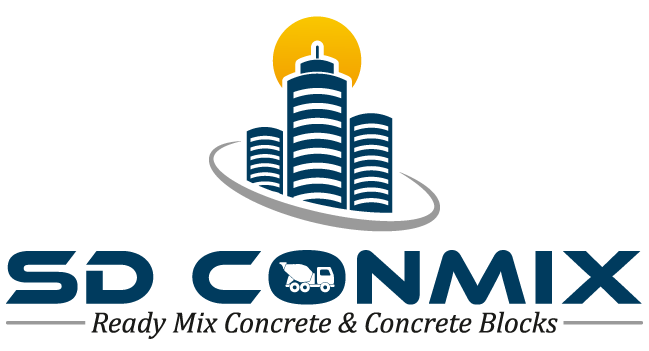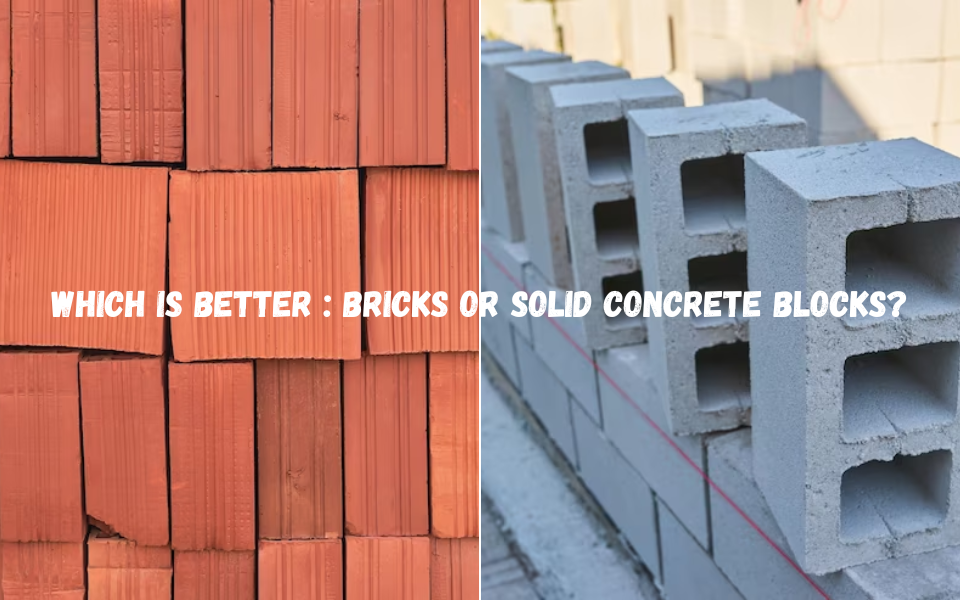Bricks are gradually being replaced by concrete blocks in the vast majority of projects. Let’s investigate the causes of this development. For the purpose of building load-bearing masonry walls, columns, and footings, top concrete blocks are typically employed. Most of the loads placed on these load-bearing structures are compressive. To determine whether concrete blocks or bricks are better suited for building, it is crucial to understand their compressive strengths. SD Conmix does quality check for each batch of ready-mix concrete to give the best concrete blocks. The qualities are accessed using the following indices.
Compressive strength
A material or structure’s compressive strength is the ability to support loads on its surface without cracking or deflection. Compression tends to cause a material’s size to decrease, whereas tension causes it to elongate. The cube test, often known as the concrete test, gives information about all the properties of concrete. In normal construction, concrete has a compressive strength range of 15 Mega Pascal (2200 pounds per square inch) to 30 Mega Pascal (4400 pounds per square inch), with higher values found in commercial and industrial constructions. Bricks are not capable of achieving this compressive strength; hence they are not as recommended for high-raised structures.
The strength of the concrete block comes from its composition. Given that cement, sand, and aggregate were used in its construction, it has a high compressive strength. Basically being ready mix concrete manufacturers, it is easier for SD Conmix to maintain high standards right from sourcing of raw materials.The brick, on the other hand, has a weak compressive strength because it is made of clay and stone. The brick is more susceptible to breaking and cracking as a result of pressure.
Compressive strength calculation formula
Any material’s compressive strength is calculated by dividing the load maintained at the point of failure by the face’s cross-sectional area.
Compressive Strength = Load / Cross-sectional Area
Water resistance
The power to resist water is the second difference between top concrete blocks and bricks. Bricks absorb more water than concrete blocks do, despite the latter being very water-resistant.
How do you check this?
3 concrete blocks should be submerged for 24 hours in clean, room-temperature water. The blocks must then be taken out of the water and set on a coarser wire mesh to drain for one minute. Once the surplus water has drained off, weigh each block separately. The blocks must be dried in a vented oven after being weighed for at least 24 hours and until two subsequent weigh-ins, spaced by two hours, reveal an incremental weight loss of no more than 0.2%.
The water absorbed is arrived as below:
Absorption, percent = (A-B)/B x 100
Where,
A = wet mass in kg.
B = dry mass in kg.
Similarly, submerge three bricks in water for 24 hours. The difference between a dry and wet brick’s weight should not be greater than 25% in the situation mentioned above.
Concrete surfaces are effective noise barriers because they reflect and absorb sound waves. With concrete blocks, cracks or leaks are issues of the past with its long-lasting & robust properties.
When it comes to cost, bocks are 15% to 20% more economical as compared to bricks. Multiple colours due to natural clays, bricks have additional limited colour choices. Unlike bricks, blocks have only a single colour and so such a problem doesn’t arise with concrete blocks.
Since concrete blocks can be molded into any desired shape and size, concrete blocks are used for a variety of purposes. They are comparatively light in weight and hence don’t take up much space in the house. Moreover, when stacked, there is no worry of any collapses.
Conclusion
The comparison of the aforementioned characteristics of concrete blocks and bricks shows that concrete blocks are better suited for construction and are the best option. SD Conmix, with its own plant and fleets, offers the best ready mix concrete and top concrete blocks.

